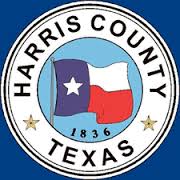Jay Aiyer pens an agenda for Harris County and its Democratic government.
First and foremost, flood mitigation has to be at the top of any list. Harris County has taken good initial steps to improve flood control infrastructure, and the passage of flood control bonds was badly needed. Those steps however, are only the beginning of what needs to be done. Development changes that prohibit growth and expansion in the floodplain, and ideas from experts like Rice University’s Raj Makand to impose a moratorium on new municipal utility districts until the region has a comprehensive plan for flood mitigation should be considered. Infrastructure development in Harris County — everything from toll road expansion to affordable housing construction should be factored into flood control efforts. Flood mitigation needs to be the county’s top priority.
[…]
The need for ethics and transparency is also required at the Commissioner’s Court itself. Unlike Houston City Council or the Texas Legislature, Harris County government remains largely shrouded in secrecy. The lack of broad transparency and pro-forma meetings results in a policy process that is largely kept behind closed doors. Commissioners have wide latitude in how business is conducted within their precinct, but that should be governed by a strong ethics policy that requires lobbyists to register and places limits on campaign contributions. A strong government requires one grounded in ethics and transparency.
Access to the ballot box and the integrity of voting process remains a major concern to all voters. Harris County needs a transparent and error-free voter registration process that works to actively register voters. Texas is eliminating straight ticket voting in 2020 and Harris County needs to start preparing for the longer lines and logistical strains that surround the longest electoral ballot in the country. This means expanding the number early voting locations throughout the county, as well as extending the hours of operation. Harris County also needs to follow other Texas counties and create election day voting centers that allow voters to cast a vote at location throughout the county — not just at a precinct.
Part of the improving voting means replacing the outdated machines. The current click-wheel electronic voting system is outdated and slow in handling our long ballot. Harris County needs to invest in modern, verifiable voting machines that can provide confidence in the electoral process while allowing voters to exercise their vote quickly and efficiently. County government has historically worked to make voting more difficult and cumbersome, and these reforms would be a good first step in reversing that.
Finally, Harris County should also revisit initiatives around the expansion of early childcare. In 2013, the well-meaning pre-K training initiative “Early to Rise,” which called for a ballot initiative to expand pre-K training programs, was strongly opposed by outgoing County Judge Ed Emmett and the Republican majority of Commissioner’s Court. While that initial plan was limited in scope, the idea of a regional approach to expanding early child care is one that needs to be explored. Research indicates that investing in early education initiatives are the best way to mitigate the effects of poverty and improve long term educational outcomes. A countywide program may be the smartest long term investment that Harris County could make.
I endorse all of Jay’s idea, which he proposes as a first-100-days plan, and I’d add a few things of my own, none of which need to be done immediately. One is for Harris County to be a more active partner with Metro, and to be fully engaged in the forthcoming transit plan and referendum. There are a lot of ways the county can contribute to better transit, and with everything Metro has going on now, this is the time. Two, continue the work Ed Emmett started in consolidating services with Houston and other cities, and make non-MUD governance a part of that development reform Aiyer outlines. Three, figure out what the office of the Treasurer can and should be doing. Incoming Treasurer Dylan Osborne has his own ideas, of course, but my point is that back in the 90s Commissioners Court basically neutered the office during Don Sumners’ term. Maybe now the time has come to restore some actual power to that office. Other counties have Treasurers, perhaps we should look to them to see if there’s a good model to follow.
I’m sure there are plenty of other ideas. (The parts that I cut out for this excerpt talked about criminal justice and bail reform, some of which have been going on.) Reviving the pre-K proposal is especially something we should all get behind. The point is, there is much that can be done, and no reason to feel restrained by “we’ve always done it that way” thinking. If it’s a good idea, let’s talk about it and figure out if we can make it work. It’s a new era in Harris County.


Aiyer writing about ethics and transparency, maybe he has changed.
“One is for Harris County to be a more active partner with Metro…..”
Kuff, many areas of Harris County are not served by Metro. Are you suggesting that those areas start collecting the Metro 1% sales tax? Do you want Metro service in the outlying suburban areas?
Maybe Lina can audit Ed Emmett’s new course at Rice, to learn how to county judge!
Who cares what Jay Aiyer thinks?
He was chief of staff for Lee Brown and elected to the Houston Community College board.
But he still couldn’t figure out raise-the-wage feasibility studies. Hilarious
No wonder. He worked with Gordon Quan at Foster LLP. Not like Gordon Quan had any real ideas while on city council.
Aiyer seems to ignore the fact that Counties do not have the power to a bunch of what he’s supporting.
Pingback: Precinct analysis: One final look at judicial races and undervoting – Off the Kuff